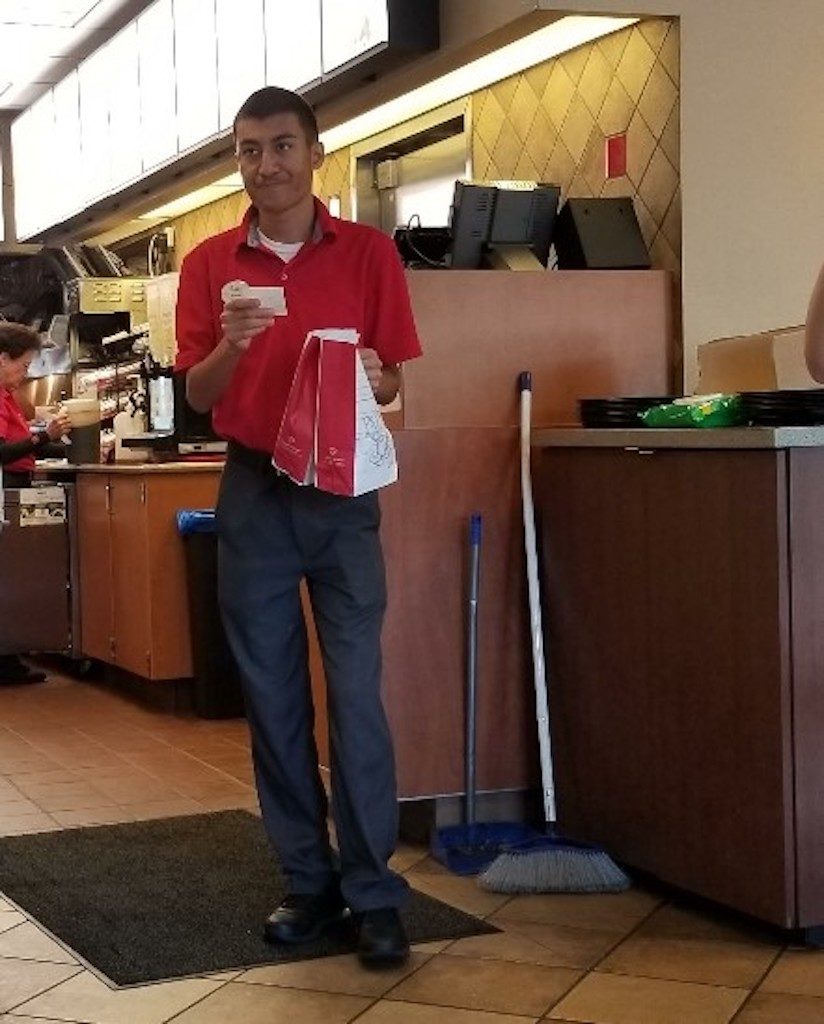
By Tim Brown
Andrew Wong works as a Chick-fil-A dining room host, cleaning tables, delivering orders, refilling drinks, and dishing up soft-serve ice cream. Like most his age, he recently graduated high school and needed a job. Wong’s opportunity came when he was placed in an on-the-job training assignment offered through vocational rehabilitation. He is now employed full time and enjoys serving customers and working alongside new friends. Wong said, “They are all very nice. They make work fun and not so much like work.”

Wong has a developmental disability. October is National Disability Employment Awareness Month, and APD is highlighting the workplace achievements of people with disabilities and the employers that hire them.
Wong says he likes his job because it makes him feel good and he no longer relies on his parents to buy everything. Wong has performed so well in his short time with the restaurant that he will soon be cross-trained and given additional responsibilities, including the cash register. Supervisor Ashley Kaemmerer said, “Andrew brings a positive attitude, smiling face, great communication, and willingness to learn the Chick-fil-A workplace.” Kaemmerer says Wong is always asking questions so he can learn his tasks and performs them all with great competency.
In his spare time, Wong enjoys swimming, kayaking, reading, and drawing. He attends Wallace Baptist Church and is involved with the youth and young adult classes. He volunteers in the nursery and with children’s church services. Wong participates in Vision of Hope, a local nonprofit organization that helps adults with developmental disabilities learn life skills and receive vocational training and job placement assistance.
Wong’s goals include getting a driver’s license so he can drive himself to work. He would also like to be able to support himself and, one day, buy his own car and house. Wong says he hopes to continue his restaurant career for many years to come. “I would like to open up my own Chick-fil-A and provide opportunities for military veterans and other adults with disabilities.”
APD supports people with developmental disabilities to live, learn, and work in their communities. The agency annually serves more than 55,000 Floridians with autism, cerebral palsy, spina bifida, intellectual disabilities, Down syndrome, Phelan-McDermid syndrome, and Prader-Willi syndrome. For more information about the Agency for Persons with Disabilities, visit APDcares.org or call toll-free 1-866-APD-CARES (1-866-273-2273).
